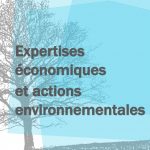The seminar “Economic expertise and environmental actions” will welcome
Antoine Fontaine and Camille Rivière
The politics of renewable resources
This session will explore the entanglement of public policies and financing in the constitution and development of new resources for the energy transition at the territorial scale.
Antoine Fontaine
From waste heat to recovered heat: which trajectories for decarbonization and energy decentralization?
While half of the energy now consumed in Europe is used to produce heat or cold (for heating, air conditioning and industrial needs), this production is still largely based on fossil fuels. Since the mid-2010s, Europe and France have tried to implement a strategy to accelerate the decarbonization of the concerned sectors. In addition to focusing on the development of thermal renewable energies, initiatives are also underway to recover so-called “waste heat”, i.e. heat emitted incidentally by numerous industrial and urban processes, to supply district heating networks. Heat thus reclassified as “recovered heat” is now a key element in the energy transition strategies of many local authorities. After showing how “waste heat” has gradually moved from the status of waste to that of a “transition resource”, we will question the nature of the decarbonization and energy decentralization trajectories at play around recovered energies.
Camille Rivière
Money markings and markdowns: the dynamics of greening the electricity industry in Guadeloupe
This presentation focuses on the process of greening the electricity industry in Guadeloupe. Since the early 2000s, this territory has been subject to increasing calls for greater energy autonomy and the development of renewable energies. The financing of these transformations relies on a specific channel, that of the contribution to the energy public service (CSPE), which initially ensured a principle of tariff equalization. We propose to study this particular financing circuit to shed light on the conflicts and controversies underpinning the energy transition. We have identified different groups of actors by analyzing their financing circuit. Within the industrial sector, there are two distinct groups: on the one hand, the incumbents, who are major importers of carbon products, and on the other, the challengers, who tend to promote renewable energies. Our focus is on the struggles between these actors to share the value distributed through the CSPE. In particular, we are interested in the money-marking and markdown operations that were carried out on this circuit over the last 20 years.

Antoine Fontaine is a CNRS Researcher at UMR Environnement, Ville, Société.
Camille Rivière is a researcher at Crigen and associate researcher at CEMS.
Information and registration

Date: Friday Octobre 27, 11am-1pm
Venue: École des Mines, room L313
60 boulevard Saint Michel, 75006 Paris
The session will also be streamed by videoconference. The link will be sent upon registration just before the seminar.
The seminar is open to all. Please register here to participate in this session.
Contact: Béatrice Cointe, Kewan Mertens or Alexandre Violle
Find out more about the programme
Photo sources: Camille Rivière, CEMS-EHESS, Centre d’étude des mouvements sociaux. Antoine Fontaine, EVS (UMR 5600 Environnement Ville société)

